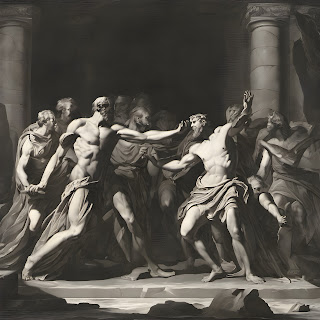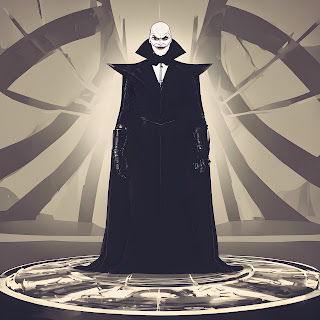Discover the art of script writing, get book writing and promotion tips, and get recommendations for captivating books on Pen and Plot. Join our community of passionate writers and readers today!
Wednesday, 19 June 2024
Unveiling the Timeless Epic: Exploring the Iliad of Homer's Historical Background, Themes, and Terminology
Wednesday, 12 June 2024
Aeschylus and His Plays
Wednesday, 5 June 2024
The Suppliants by Aeschylus: Unveiling Ancient Greek Tragedy and Its Enduring Themes
- Chorus of the fifty daughters of Danaus.
- Danaus, a descentant of Zeus and Io.
- Pelasgus, King of Argos.
- Herald of the Egyptians.
- Second chorus of maids attending the Danaids.
- Other soldiers and Attendants.
Sunday, 2 June 2024
Ancient Stories: The Greek Theatre
Wednesday, 29 May 2024
"Philoctetes": Exploring the Themes, Characters, and Motifs in Sophocles' Ancient Greek Tragedy
''Philoctetes'' is an ancient Greek tragedy written by Sophocles. It was first performed at the Great Dionysia in 409 BC, where it won the first prize. The plot centres around the character of Philoctetes, a skilled and famous archer who was abandoned on the island of Lemnos by the Greek army due to a foul-smelling wound that has become infected. One of the people who betrayed him, leaving him on the island, was Odysseus. Years later, and after receiving a prophecy, the Greeks realise that they need Philoctetes and his powerful bow and arrows to defeat the Trojans. Odysseus and Neoptolemus, the son of Achilles, arrive on the island to convince Philoctetes to join their cause. According to mythology, Philoctetes' weapons belonged to Heracles, and he gave them to him before he died.
Wednesday, 22 May 2024
Unveiling the Enigmatic Appeal: Exploring Beloved Villain Characters in Movies and TV Shows
The Psychology Behind the Appeal of Villain Characters
YouTube
Wednesday, 1 May 2024
Unraveling the Plot, Characters, and Background of Ajax by Sophocles
Ajax is a tragedy written by the ancient Greek playwright Sophocles. Set during the Trojan War, the play delves into themes of honour, pride, and the consequences of one's actions.
Characters: Athena, Odysseus, Ajax, Tecmessa (captive wife of Ajax), Teucer (half-brother of Ajax), Menelaus, a messenger, Chorus, Eurysaces (the young son of Ajax and Tecmessa), Agamemnon, Attendants.
Wednesday, 17 April 2024
Unveiling the Fates: The Tragic Consequences of Pride, Hubris, and Nemesis in Ancient Greek Culture
Wednesday, 27 March 2024
Unveiling the Epic Battle: Aeschylus' Seven Against Thebes
Aeschylus, often hailed as the father of tragedy, was a prominent playwright in ancient Greece. He lived during a time of great cultural and intellectual transformation. Aeschylus made a significant contribution to the development of Greek theatre, introducing a second actor and expanding the chorus' role. His works explored complex themes and showcased the human condition through dramatic storytelling. Among his many plays, ''Seven Against Thebes'' stands as a remarkable testament to his literary prowess.
Wednesday, 13 March 2024
Unveiling the Timeless Artistry: Exploring the Six Elements of Ancient Greek Tragedy
Menander: The Life and Works of the Ancient Greek Comic Poet
Menander was born around 342 BC in Athens and died in 290 BC. Hailing from a family of prominent intellectuals, his father was Diopeithes, a...

-
The Enuma Elis is a mesmerising epic poem from ancient Mesopotamia that has captivated scholars and enthusiasts for centuries. As one of the...
-
Hubris, a concept deeply rooted in ancient Greek theatre, is a tragic flaw that often leads to the downfall of the protagonist. Derived from...
-
The chorus is an integral part of ancient Greek tragedy, playing a vital role in enhancing the dramatic effect and conveying the central the...


















